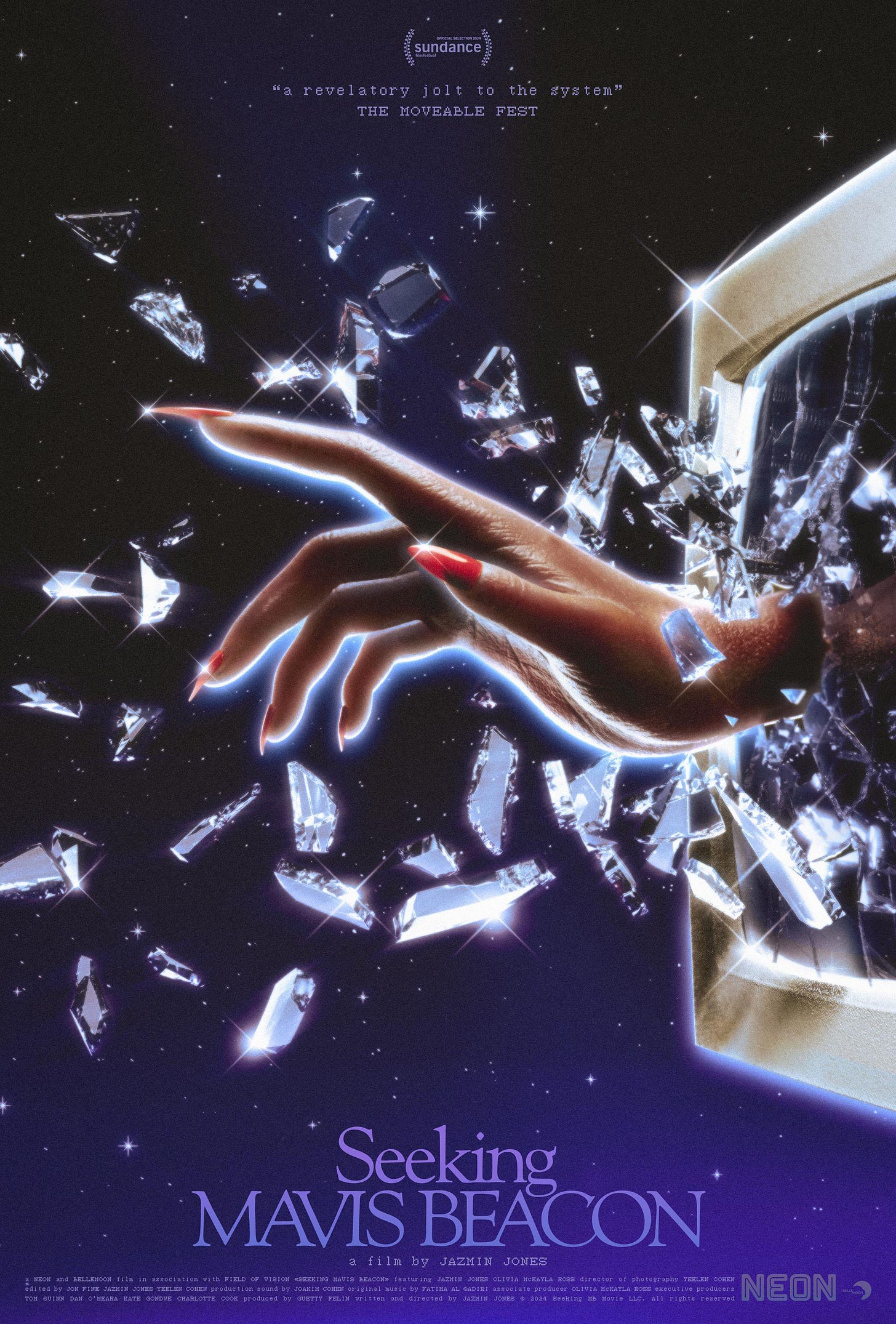REVIEW: London Film Festival (digital)
Capsule reviews from attending London Film Festival through their online platform.
Before this piece, I would like to thank Amon and Hanna at the LFF Critics Fund for covering the cost of my accreditation for this years festival. I applied knowing that I would not be able to attend physically and they were still able to supply accreditation for access to the digital platform. I am immeasurably grateful for the existence of the fund and to the tireless efforts of these people in helping critics achieve coverage of the festival.
This post is to be updated as I go
SEEKING MAVIS BEACON dir. Jazmin Jones
Before A.I. interfaces Alexa or Siri became commonplace within society, another artificially intelligent entity featured prominently amongst homes in the late 20th century: Mavis Beacon. Jazmin Jones’ Gen-Z coded documentary Seeking Mavis Beacon chronicles archivist Olivia Mckayla Ross and filmmaker Jones’ search for Mavis Beacon, a type-writer interface that used the image of a Black woman named Renée L'Esperance back in the late 1980s for software ‘Mavis Beacon Teaches Typing’. Ross and Jones become digital detectives, searching for L'Esperance across the virtual airwaves, utilising contemporary technological devices — social media platforms, on-screen menu displays, facetime calls — to present their documentary as a hybrid of intertextual discussions on admittedly too many subjects, the most intriguing of which being the discussion over the autonomy we have — if possible — over our digital footprint and our image rights (L’Esperance was paid only $500 for the right to her face on a game that grossed $400m for the company). They go down this rabbit hole in the beginning as they search for Mavis Beacon, a Black interface that first gave these young women intellectual representation, before transforming into an pseudo-diary of their lives through and post-Covid. The film becomes less about Beacon or L'Esperance, remoulding itself as a coming-of-age picture for these women attempting to seek truth in the myth of their youth.
BABY dir. Marcelo Caetano
Having been released from juvenile detention after two years of incarceration, Wellington (João Pedro Mariano), the directionless teenage protagonist of Marcelo Caetano’s sophomore feature Baby, finds himself homeless – his mother and father have moved with no forwarding address – and he is metaphorically lost in the midst of metropolitan São Paulo. After visiting a porn theatre, he is taken under the wing of older queer escort Ronaldo (Ricardo Teodoro) who is fascinated by him, both professionally and personally. Under the pseudonym Baby, the 18-year-old begins exploring adulthood through sex work, both encouraged by the idea of being desired and liberated by the smattering of freedom allocated to him by pimp and lover Ronaldo. Not all of Baby works: the idea of queer exploration through survival sex work comes loaded with connotations that aren’t explored in a way that it perhaps merits; while the power dynamic between him and Ronaldo is too imbalanced to be prickly enough come it’s closing moments as Ronaldo is too controlling – his affection is dependent on Baby’s ability to provide – for what is often presented as affection. The more joyous elements of the drag queen family (of the found variety) Close Certo vogueing on a train, alongside an intermittent percussive drum-infused score feel tonally diasporic to the scenes of police brutality that are on display. But Caetano’s direction is assured enough to sell it and the performances from first-timers Mariano and Teodoro are remarkably confident. Their chemistry is also a highlight; as opposites – Ronaldo is an older Greek god shaped Bear, while Baby is a smooth twink – they both achieve emotional power with fleeting glances, even if their dynamic really needed to handled much more screen time and be explored in a less trivial way.





